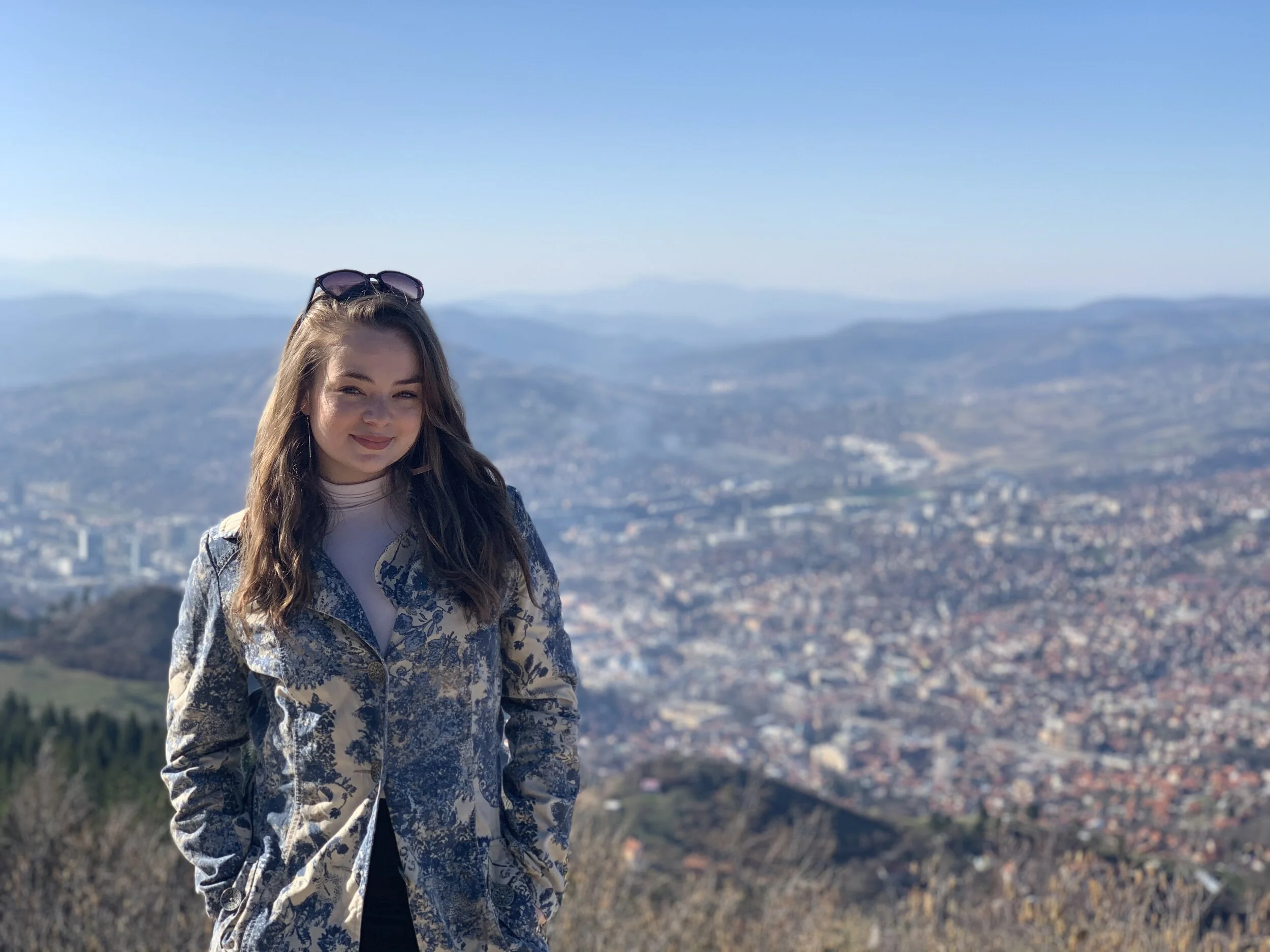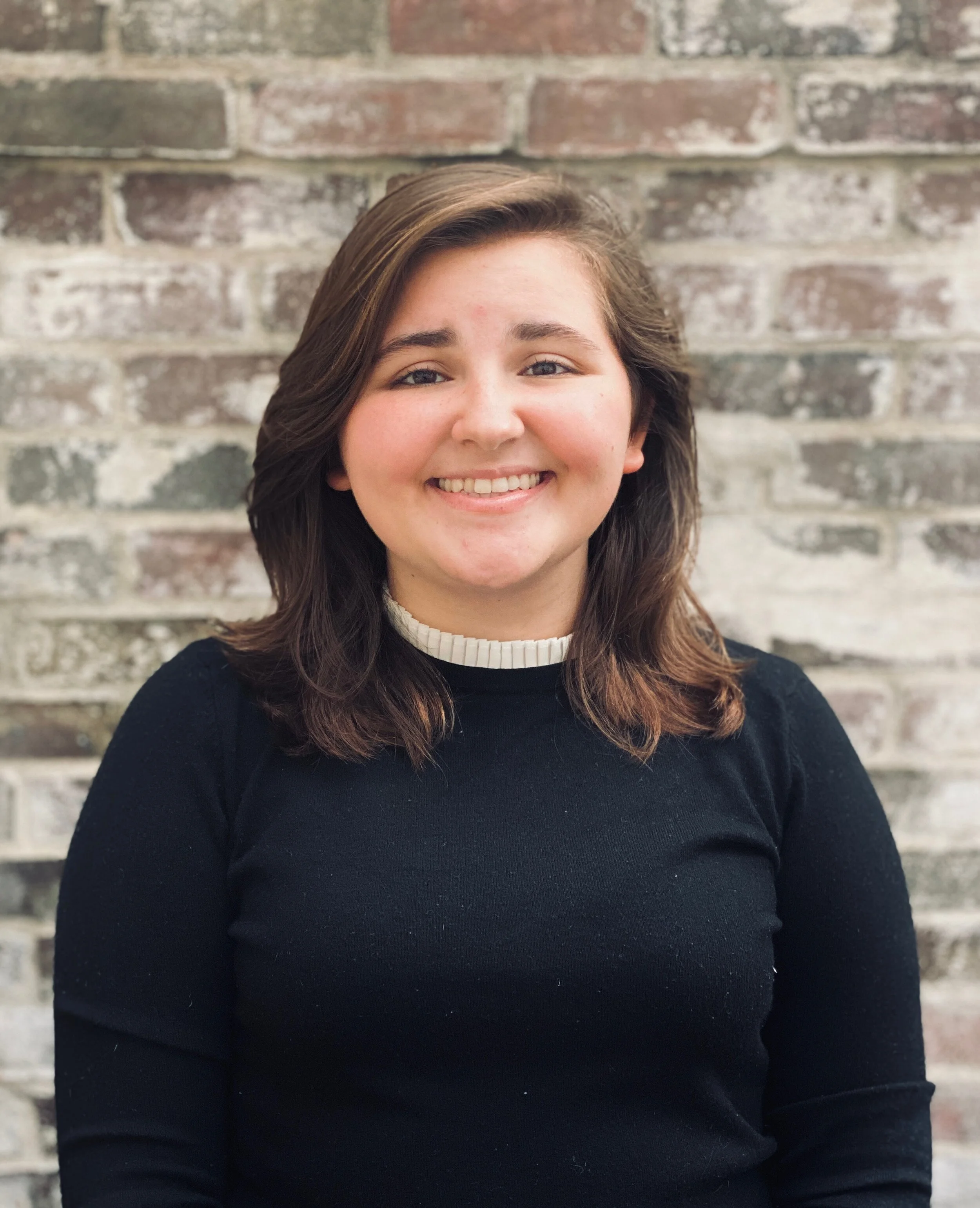
Our team
Eva Isakovic, Founder/Director
Eva is a researcher focused on ethnic conflict, autocracies, and democratization. She graduated from the University of Southern California in December 2020 magna cum laude with a Bachelors in Economics. In her pre-pandemic life, Eva worked in Serbia and Bosnia as a Boren Scholar conducting empirical field research on the persistent effects of civil war on political engagement and citizen attitude in the former Yugoslavia. Prior, she was a Summer Fellow for the Oxford Initiative on Global Ethics researching conflict and refugee policy at the Moria Refugee Camp and served on the Initiative’s Leadership Board as the Balkan Special Advisor. Currently, she spearheads a team of researchers at the Lab on Non-Democratic Politics studying autocratic governments and their lobbying strategies in the United States. In October 2021, she will return to Bosnia as a Fulbright Scholar (postponed due to COVID-19).
Eva is interested in ongoing ethnic reconciliation efforts and democratic transition in the Balkans. She hopes to combine regional experience and quantitative tools to support regional peace. She is an ardent traveler, avid skier, and if she’s not in the lab or on a plane, Eva can be found playing her bass or practicing as a special-effects makeup artist.
Layla Kratovic, Field Director, Houston
Layla Kratovic is a research associate at the University of Texas Medical Branch. She is currently a study coordinator in the Texas Childhood Trauma Research Network, a federally-funded project that examines the mental health outcomes associated with traumatic life events in youth. In May 2019, she graduated summa cum laude from the University of Houston with a Bachelor's degree in Psychology. Following graduation, she received a Fulbright grant to conduct research on transgenerational trauma in post-war Bosnia and Herzegovina. During her time in Bosnia, Layla worked with adults born after the war to assess their mental health outcomes and traumatic life experiences. Her research interests include the etiology, maintenance, and treatment of trauma-- she plans to pursue a doctoral degree in clinical psychology.
Layla is the daughter of war refugees from Bosnia and Herzegovina. With age, she came to realize that the lines of communication in post-war, former Yugoslavia had been replaced with religious and ethnic intolerance. This realization developed into a fascination with psychology-- she aims to understand the roots of societal issues, but more importantly, she hopes to improve both individual and community level coping with trauma via trauma-focused research. When not working on research, Layla enjoys spending time with her dog, traveling, and visiting local coffee shops.
Erna Hrstic, Field Director, St. Louis/Chicago
Erna Hrstic is a senior at DePaul University studying Peace, Justice, and Conflict Resolution with a minor in Geography. As a second generation immigrant and the daughter to a Bosnian father and Croatian mother, she is committed to repairing the cultural connections that seem to have been lost in the wars of the 1990s. Originally from Nashville, TN, Erna spent the past year studying International Relations at the International University of Sarajevo under the Boren Award. While in Sarajevo, she volunteered at the War Childhood Museum and was a conference organizer for the Western Balkans Youth Conference: Regional Cooperation and Integration.
She is currently interning at the Smithsonian Museum working for the Studying Cultural Heritage Destruction in Conflict Initiative where she documents instances of cultural heritage destruction during the Bosnian War. Erna hopes to employ her knowledge of post-conflict societies and conflict resolution in the U.S. State Department one day as a specialist in American-Balkan affairs.
Suncica Drobnjakovic, Translator/Field Director, Belgrade, Serbia
Suncica Drobnjakovic is a student at the Faculty of Philology in Belgrade, Serbia studying Italian language, literature, and culture. She completed one year of high school in Provo, Utah, as a Future Leaders Exchange scholar sponsored by the US Department of State. For two years, she has been a City Representative for Belgrade on behalf of the FLEX program. She conducted city-wide projects with the FLEX community, and has worked and volunteered in Italy through AIESEC, the youth-led and student-organized NGO for leadership and international exchange. Her experiences have helped her become more open-minded, communicative, productive, and eager to engage her community.
She is passionate about media literacy in Serbia, mental health, digital communication, uplifting others’ experiences. This project is important to her because she believes in the power of human voice and the power of being heard. She believes that face-to-face conversations and real stories coming from real people are vital to collective education and learning across former-Yugoslav countries.
Jelisaveta Janicijevic, Translator/Field Director for Novi Pazar, Serbia
Jelisaveta Janicijevic is a student at the University of Belgrade Faculty of Law. She has been a City Representative for Belgrade and Novi Pazar for the US State Department’s Future Leaders Exchange Program for two years. She has studied in the US and has completed one year of American high school in South Boston, Virginia through American Councils for International Exchange where she interned working on cross-cultural exchange programs.
Although she was born in Serbia, her mother is from Kosovo and her father from Montenegro. Born in 2000, she did not experience the prior 50 years of conflict that other Balkan natives had, and had always been told that she was lucky to be born after the “war era.” As she grew up and begane socializing with other ethnicities, she had the opportunity to hear numerous stories precisely from the “war era,” whether from the Bosnian war, the Serb-Croatian war, or Kosovo war. She saw first-hand the conflicting sides of war from various survivors, and realized that such stories should be heard. She began working on projects investigating stories from the Balkan conflicts of the 20th century and cooperated closely . These experiences along with desire for connection among all Balkan people drove her to participate in the Project as she hopes to foster opportunities for the rest of the world to hear their stories.




